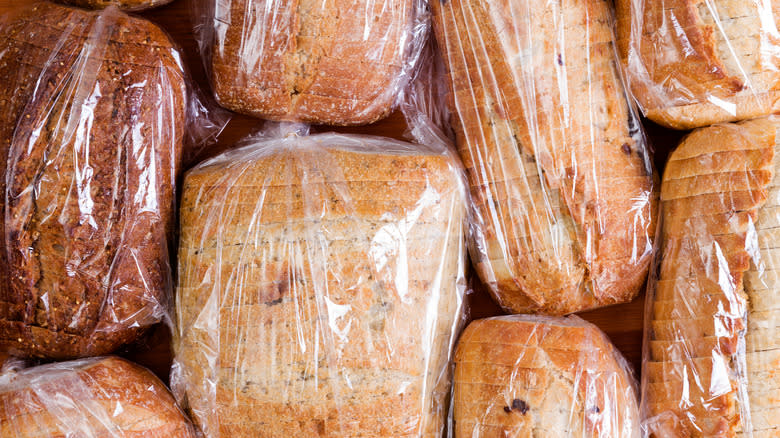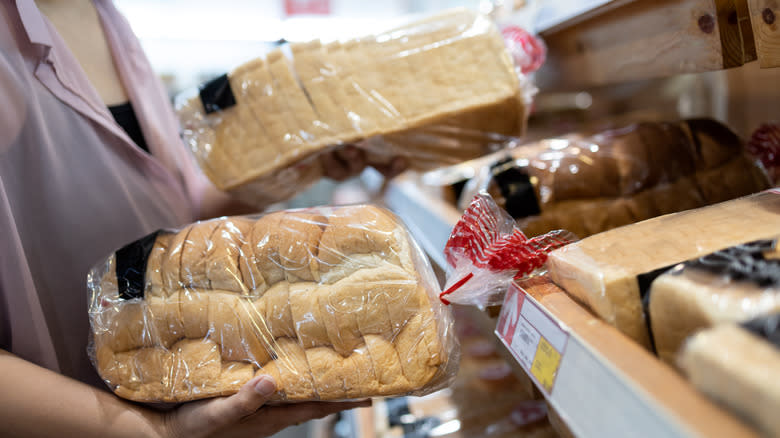The Foolproof Method For Closing Your Plastic Bread Bag

Twisting your plastic bread bag and leaving it to unravel on the countertop is a popular but poor move when it comes to keeping a fresh loaf as soft and pillowy as possible. Luckily, we've got a foolproof method for closing your plastic bread bag that takes only a few seconds and doesn't require a food clip: Twist the loose end of the bag and wrap it over the remaining loaf like a little hood.
You could, of course, tie a knot in your bread wrapper to close it, but this common method means you'll have to grapple with an annoying knot the next time you want to grab a quick slice of bread from the bag. And, the truth is that some of us impatient (and hangry) types may take to ripping it open like the Incredible Hulk instead of taking the time to undo the knot. Instead, try this flawless, time-saving technique. Just take the loose end of the bag and grasp it at the point where it meets the bread so you're holding the wrapper in your fist. This should help remove as much air as possible from the bread bag. Keep hold of the plastic and use your free hand to spin the base of the bread two to three times to create a little twist. Finally, take the top end of the bag, open it up, and pull it back over the bread to seal the package.
Read more: What Happens If You Accidentally Eat Mold?
Be Sure To Remove Any Air From The Bag

By employing this technique, you're essentially encasing, or hooding, the remaining bread with a double wrap that won't unravel. This little trick keeps the twisted bit of the wrapper in place, ensuring it remains airtight. Removing the air from the bread and keeping it well covered prevents it from going stale and developing a hard, unpalatable crust. When a sliced loaf is left open to the air, the existing moisture in the bread is drawn out into the atmosphere, causing it to become dry on the surface. It's vital to reduce this exposure if you'd like your loaf to remain soft and spongy to make the freshest sandwiches, French toast, and more.
Bread that you've made at home and placed in a plastic wrapper will go stale faster than a loaf bought from the store because it won't contain those preservatives, additives, and treatment agents that help commercially baked goods stay soft. However, you can still use this nifty trick to slightly extend the shelf life of a sourdough boule that you've lovingly baked in a Dutch oven at home. So, the next time you're rushing to make toast in the morning, remember to twist the plastic bread bag three times before wrapping it back over itself to guarantee it stays soft for tomorrow's hoagies.
Read the original article on Tasting Table.

